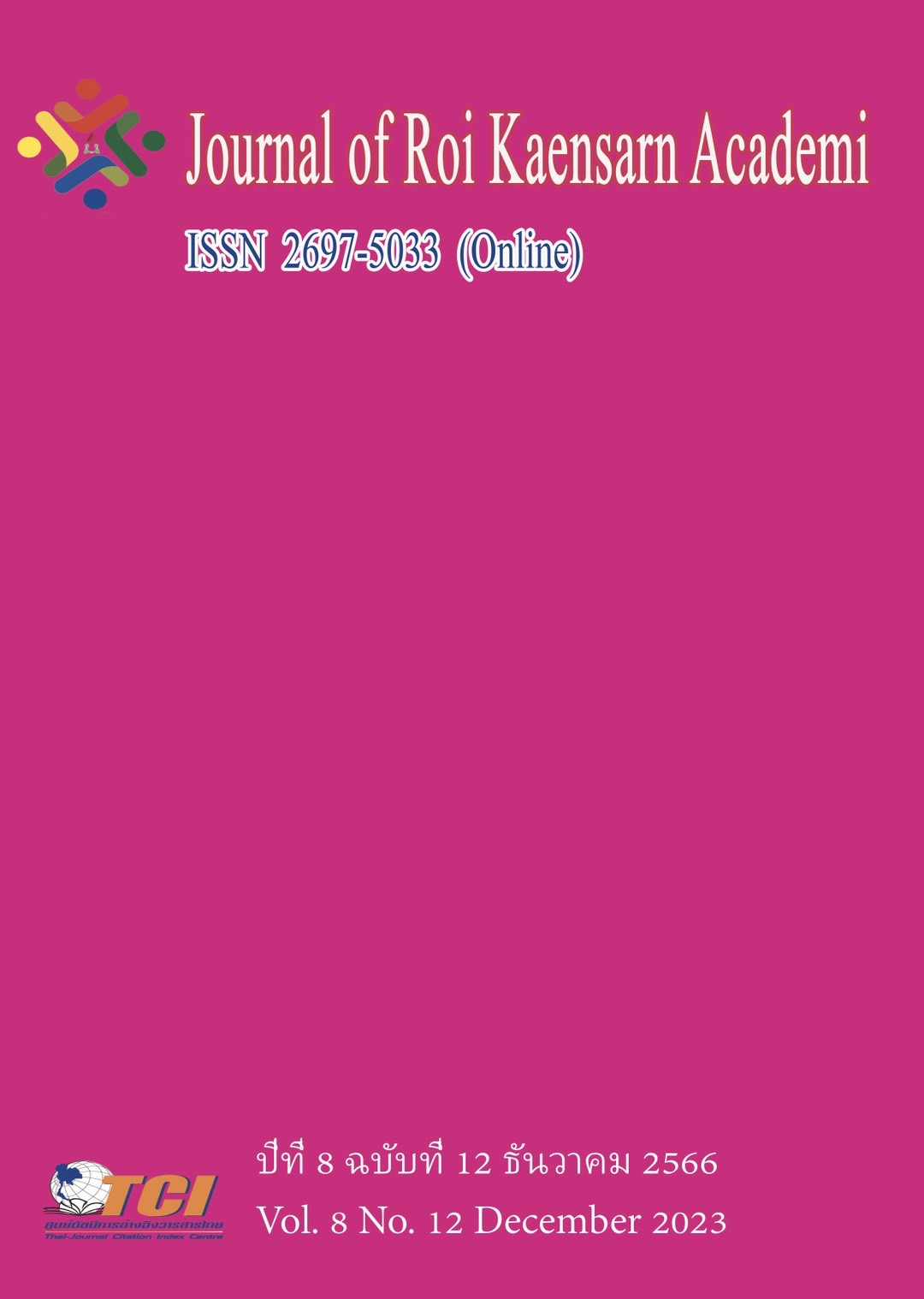แรงจูงใจในงานของพนักงานชนรุ่นแตกต่างกันในองค์การภาครัฐ
Main Article Content
บทคัดย่อ
การมีพนักงานหลากหลายชนรุ่นปฏิบัติงานร่วมกันและมีปฏิสัมพันธ์กันภายในองค์การเป็นปรากฏการณ์ใหม่ในปัจจุบันที่อาจนำมาซึ่งความขัดแย้งในองค์การ เนื่องจากคนที่ต่างชนรุ่นกันมักจะมีทัศนคติ ค่านิยม ความเชื่อ บุคลิกภาพ ทักษะในการสื่อสาร และความต้องการในงานแตกต่างกัน งานวิจัยนี้มีวัตถุประสงค์สำคัญที่จะทดสอบสมมติฐานที่ว่า ชนรุ่นต่างกันที่ปฏิบัติงานในองค์การภาครัฐมีแรงจูงใจในงานแตกต่างกัน โดยทำการวิจัยแบบตัดขวาง เก็บข้อมูลจากผู้ให้ความร่วมมือตอบแบบสอบถามที่ส่งไปทาง Google form ให้กับพนักงานในหน่วยงานกรุงเทพมหานคร แบบสอบถามที่ได้รับกลับคืนมามีจำนวน 195 ฉบับ ผลการวิจัยพบว่าพนักงานชนรุ่น Millennials มีแรงจูงใจในงานโดยรวมและแรงจูงใจภายในมากกว่าพนักงานชนรุ่น Gen X อย่างมีนัยสำคัญทางสถิติที่ระดับ 0.05 ส่วนระดับของการไม่มีแรงจูงใจและแรงจูงใจภายนอกระหว่างชนรุ่นทั้งสองไม่แตกต่างกันอย่างมีนัยสำคัญทางสถิติที่ระดับ 0.05 การวิจัยนี้ชี้ให้เห็นความสำคัญของการตอบสนองความต้องการของชนรุ่น Millennials โดยเน้นที่การให้สิ่งจูงใจภายในเป็นประการสำคัญ
Article Details
เอกสารอ้างอิง
สุวรรณี แสงมหาชัย. (2565). องค์การและการจัดการ. (พิมพ์ครั้งที่ 4). กรุงเทพมหานคร: สำนักพิมพ์มหาวิทยาลัยรามคำแหง.
สุวรรณี แสงมหาชัย. (2566). ความแตกต่างระหว่างชนรุ่นกับนวัตกรรมการฝึกอบรมและพัฒนาพนักงานในองค์การภาครัฐ. เอกสารประกอบการสัมมนาทางวิชาการ โครงการปรัชญาดุษฎีบัณฑิต สาขาวิชารัฐประศาสนศาสตร์ คณะรัฐศาสตร์ มหาวิทยาลัยรามคำแหง. กรุงเทพมหานคร: บริษัท พี.เอส.กรุ๊ป (1954) จำกัด.
Alferjany, M. A. O. A. & Alias, R. B. (2020). Generational differences in values and attitudes within workplace. Psychology and Education Journal. 57 (9), 1496-1503.
Buelens, M. & Broeck, H. V. D. (2007). An analysis of differences in work motivation between public and private sector organizations. Public Administration Review. 67 (1), 65-74.
Costanza et al. (2012). Generational differences in work-related attitudes: A meta-analysis. Journal of Business and Psychology. 27 (4), 375-394.
Cote, R. (2019). Motivating multigenerational employees: Is there a difference? Journal of Leadership, Accountability and Ethics. 16 (2), 15-29.
Danna, R. (2018). Motivational drivers by generation. Forbes. (Online).
Diskienė, D., Stankevičienė, A., & Jurgaitytė, N. (2017, December). Challenges for human resource department: The case of millennials in the workplace. In ECMLG 2017 13th European Conference on Management, Leadership and Governance. 11-12 December 2017. UK: University of London.
Gabris, G. T. & Simo, G. (1995). Public sector motivation as an independent variable affecting career decisions. Public Personnel Management. 24 (1), 33-51.
Gurchiek, K. (2016). What motivates your workers? It depends on their generation. SHRM better workplaces better world.
Heyns, M. M., & Kerr, M. D. (2018). Generational differences in workplace motivation. SA Journal of Human Resource Management. 16 (1), 1-10.
Higgs, P., Hyde, M., Wiggins, R., & Blane, D. (2003). Researching quality of life in early old age: the importance of the sociological dimension. Social Policy & Administration, 37 (3), 239-252.
Hotchkiss, D. R., Banteyerga, H., & Tharaney, M. (2015). Job satisfaction and motivation among public sector health workers: evidence from Ethiopia. Human Resources for Health. 13 (1), 1-12.
Jones, C. & Gatwood, J. (2021). Motivating employees from different generations. AEU – The American Equity Underwriters, Inc. (Online).
Jurkiewicz, C. L., Massey Jr., T. K., & Brown, R. G. (1998). Motivation in public and private organizations: A comparative study. Public Productivity & Management Review. 21 (3), 230-250.
Kielerstajn, R. (2008). Age and work motivation: The view of older employees. (Online).
Stein, J. (2013). Millennials: The me me me generation. Time magazine. 20, 1-8.
Steinerowska-Streb, I. & Wziatek-Stasko, A. (2016). Effective motivation of multigenerational teams – Presentation of own research results. Management international conference (MIC): Managing global changes, at Pula, Croatia.
Suwarsito, S. (2020). The role of work environment and work motivation in increasing employee performance. Widya cipta: Jurnal sekretari dan manajemen. 4 (1), 70-75.
Tolbize, A. (2008). Generational differences in the workplace. Minneapolis, MN: Research and Training Center on Community Living.
U.S. Bureau of Labor Statistics. (2018). Employee tenure summary. U.S. Department of Labor. Retrieved from www.bls.gov.
Valickas, A. & Jakstaite, K. (2017). Different generations’ attitude towards work and management in the business organizations. (Online).
Warr, P. (1992). Age and occupational well-being. Psychology and Aging. 7 (1), 37-45.
Xu, Y., & Chen, X. (2016). Protection motivation theory and cigarette smoking among vocational high school students in China: a cusp catastrophe modeling analysis. Global Health Research and Policy. 1 (3), 1-9.
Yusoff, W. F. W. & Kian, T. S. (2013). Generation differences in work motivation: from developing country perspective. TI International Journal of Economy, Management and Social Sciences. 2 (4), 97-103.
Zaharee, M. et al. (2018). Recruitment and retention of early-career technical talent. Research-Technology Management. 61 (5), 51-61.

